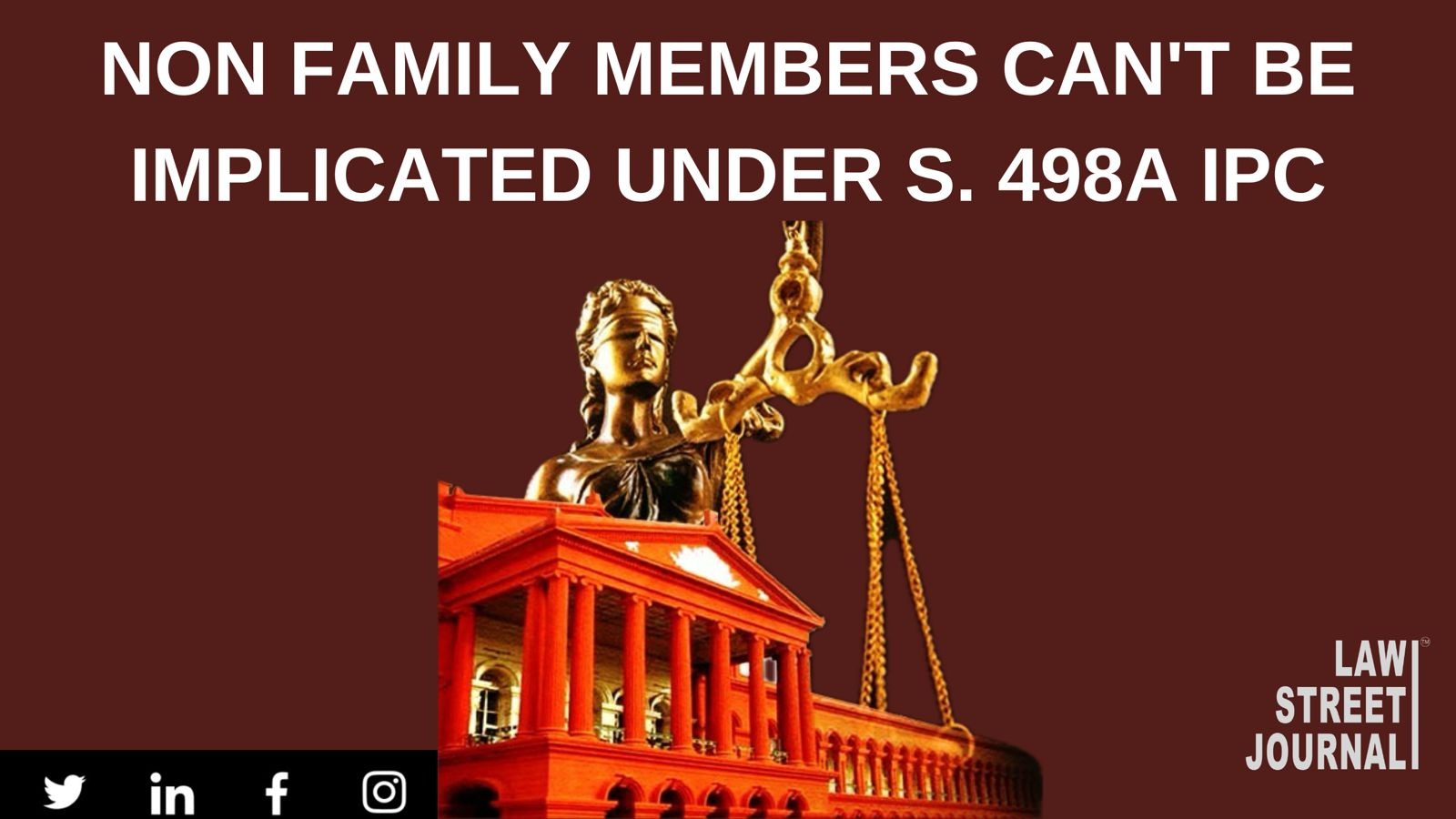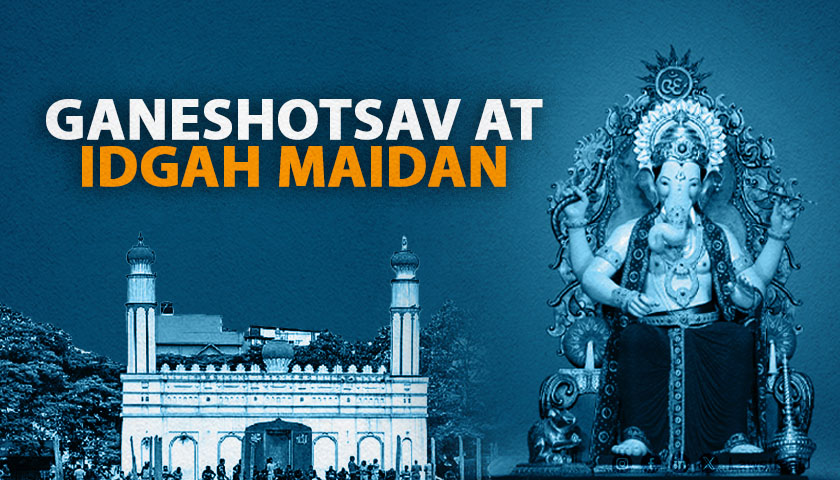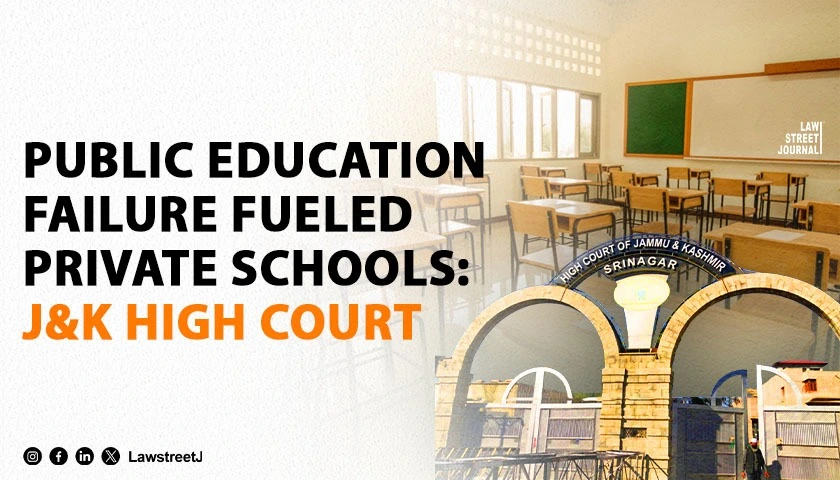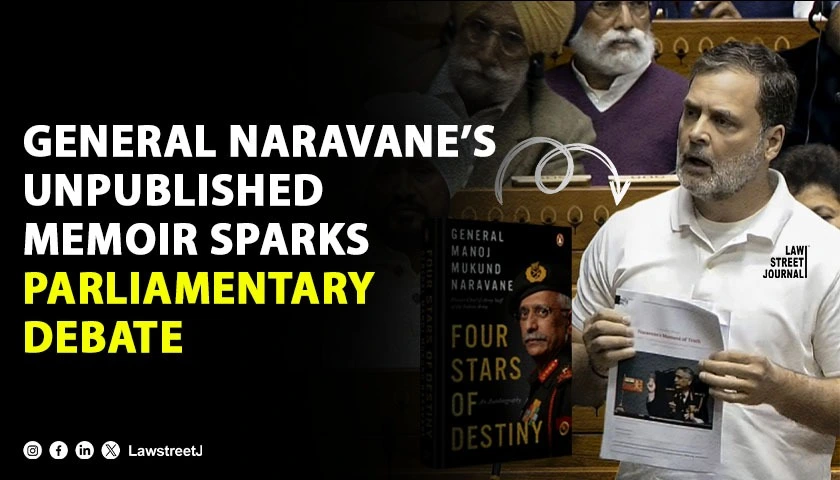BENGALURU: A person who is not a family member cannot be implicated under Section 498A (Husband or relative of husband subjecting woman to cruelty) of the Indian Penal Code, the Karnataka High Court said in an order dated February 9.
The allegation against accused No.9 is nothing but adultery. The allegation also reveals that she was abating accused No.1 for committing the offence under Section 498A of IPC. Accused No.9 is not a family member or in-laws in order to implicate under Section 498A of IPC and left with only Section 109 or 114 of IPC, which is an abatement or instigation for Section 497 or 494 of IPC, which is bar for taking cognizance under Section 198 of Cr.P.C. by the Magistrate. Therefore, proceeding against accused No.9 cannot be sustainable for the offence punishable under Section 498A of IPC or any other offences, Justice K Natarajan highlighted.
The genesis of this case was when the complainant alleged accused No.1, her husband, to have demanded and accepted dowry. The complainant asserted that there were demands for dowry and expensive gifts from the accused's family, leading to marital discord. Additionally, her husband was having an extramarital affair with accused No.9, leading to mental harassment.
Resultantly, a complaint was filed, a police investigation was conducted and a charge sheet was filed. Challenging this, the petitioners argued that there were no specific allegations against them, and the entire case primarily focused on accused No.1. They contended that the addition of accused Nos.2 to 8 in the charge sheet was a false implication, and the proceedings against them were an abuse of process.
Further, accused No.9 is a childhood friend of accused No.1 and shouldnt implicated under Section 498A of IPC, as she is not related to the complainant as an in-law.
After going the factual matrix and the rival arguments, the court noted that the complainant had elaborately narrated the story of life regarding the love marriage, birth of the children, staying at Bengaluru, Mysuru and U.K.
Till 2016, there is no complaint against any of the accused persons either for demand of dowry or harassment by the petitioners. The trouble started only in the year 2016, when accused No.1 contacted accused No.9 through whatsapp group of their school mate in the name of 'Hum Panch', where accused No.1 said to be shared the pornography videos with the whatsapp group especially with accused No.9. When the same was questioned, accused No.1 said to be harassed respondent No.2.
Further, the court noted that except for one allegation, no ingredients were made out in the complaint to attract Sections 498A, 506 and 504 of IPC against the accused persons in order to face the trial by the petitioners.
Explanation to Section 498A of IPC, does not make out any offence as against accused Nos.2 to 8. If at all, the complainant is trying to commit suicide by taking sleeping tablets, it is because of the quarrel between accused No.1 and herself. Therefore, accused No.1 requires to face the trial. The petitioners have not at all stayed together with accused No.1 and complainant during their marital life, the Court observed.
This is a classic case of falsely implicating the family members and others in order take revenge against accused No.1 who is said to be having intimacy with accused No.9, the Court noted while adding that the other accused persons had advised her husband and supported the complainant from the very beginning.
The entire complaint reads like autobiography of the respondent No.2-complainant. She has narrated the story, but there is no specific allegation against the petitioners for having committed the physical and mental harassment for demand of any dowry as per Explanation (1) to Section 498A of IPC. The entire grievance is against accused No.1-husband. It is simply alleged that the petitioners abated accused No.1 for harassment on the complainant, but in fact, they are all advised accused No.1 and supported the complainant from the beginning. Respondent No.2-complainant has also filed a civil suit and a divorce case is also pending between accused.
Further, there is it is nothing but accused No.1 and accused No.9 having illicit intimacy between them, the Court pointed out. Though she has stated that they are in compromise position, but no proper allegation is made in the complaint. Merely a photograph showing accused No.1 with accused No.9 since they are school friends and they are in the WhatsApp group, that itself is not a ground that accused No.9 has abated accused No.1 for commuting the offence harassing the complainant to attract Section 498A read with Section 109 or 114 of IPC. 37.
Even if it is considered that the relationship of accused No.1 and accused No.9 is adultery, which is punishable under Section 497 of IPC, the Supreme Court in Joseph Shine vs Union of India struck down the provision of Section 497 of IPC as violative of Articles 14, 15(1) and 21 of the Constitution of India, the High Court said.
The judgment of the Constitution Bench of the Hon'ble Supreme Court has clearly held that the adultery is not an offence punishable under the IPC and it may be used for civil cases seeking remedy in the matrimonial cases.
On these grounds, the court quashed the case against the family members (Accused 2-8) and Accused 9 (family friend).







![Karnataka High Court: Cabinet Rank Status Not Equivalent to Ministerial Position [Read Order]](/secure/uploads/2023/09/lj_2318_fc1b99b7-aeed-472b-836e-33750bedb394.jpg)


![Woman living in adultery cannot claim maintenance: Karnataka High Court [Read Order]](/secure/uploads/2023/10/lj_3083_Women_living.jpg)






